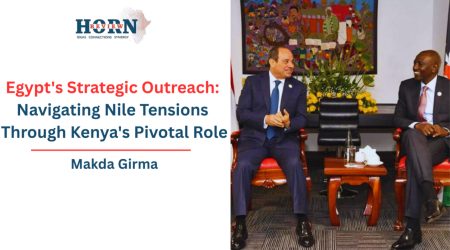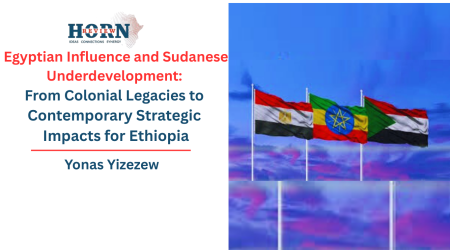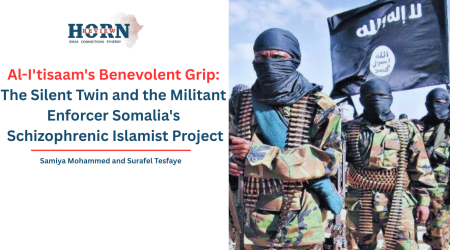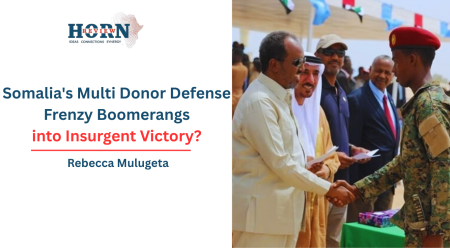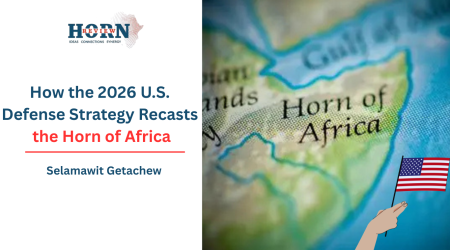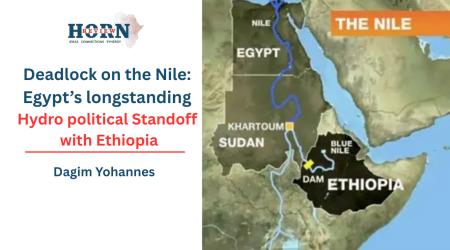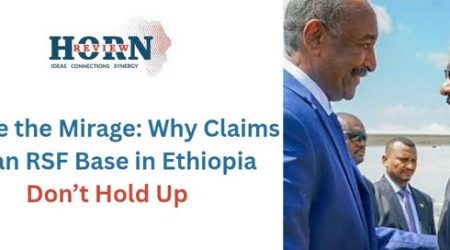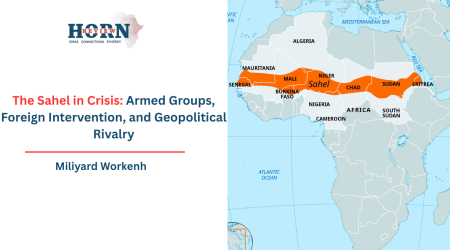
12
Nov
The Gulf’s Gatekeeper: Egypt’s Alam El Roum Project Economic Development or Strategic Containment?
The recent Qatar and Egypt announcement is one of the region’s largest real estate and tourism partnerships, a $29.7 billion integrated urban development on Egypt’s North Coast spanning 4,900 acres with 7.2 kilo meters of Mediterranean beachfront. While ostensibly an economic development project, from strategic perspective this Qatari injection constitute Considerably more tourism infrastructure , it constitutes a Hefty strengthening of Egypt’s regional position precisely when Ethiopia is pursuing its own strategic objectives regarding Red Sea access and Nile River utilization. The convergence of Qatari capital with Egyptian regional zeal creates a new reality that Ethiopia cannot afford to ignore.
To fathom Ethiopia’s perspective, one must first understand the Inveterated tensions over the Nile River. For decades, Egypt maintained a privileged position over Nile waters based on colonial-era agreements that largely excluded upstream nations. This fluid shifted fundamentally with Ethiopia’s construction of the Grand Ethiopian Renaissance Dam and recently inaugurated despite Egyptian objections. The GERD with true nature not just an infrastructure project but a reassertion of Ethiopian sovereignty and a rebalancing of regional hydro-politics. Egypt has consistently framed any threat to its Nile water share as a crisis, with Egyptian leaders historically stating that the only matter that could take Egypt to war again is water. In view of the foregoing, any substantial strengthening of Egypt’s economic position automatically registers in Ethiopia’s as a potential threat to negotiating position on Nile waters.
Since Eritrea’s independence in 1993 deprived Ethiopia of its Red Sea coastline, the country has relied predominantly on Djibouti for trade. Prime Minister has explicitly framed regaining sea access as imperative, stating that the loss of Assab port was a mistake made three decades ago that would be corrected. Ethiopia’s memorandum of understanding with Somaliland in early 2024 offering potential recognition in exchange for port access represents most concrete step toward resolving this vulnerability.
From Ethiopia’s perspective, Qatar’s massive investment in Egypt’s Mediterranean coast reinforces Egypt’s position as the Gulf’s primary gateway to Africa, potentially marginalizing Ethiopia’s alternative vision of itself as a land linked trade hub connecting the Horn of Africa to broader markets.
The composite situation in Somalia provides perhaps the most immediate manifestation of these competing strategic interests. Egypt has recently deepened its military engagement with Somalia’s Federal Government, delivering weapons and training to the Somali National Army, with plans to deploy up to 10,000 Egyptian troops as part of the African Union’s new stabilization mission. While Somalia’s President has dismissed the possibility of proxy war between Egyptian and Ethiopian forces on his soil, from a different viewpoint, the Egyptian military presence in Somalia shows a strategic encirclement effort. This deployment positions Egyptian forces near Ethiopia’s borders and adjacent to the Somaliland region, where Ethiopia seeks port access. The Qatari financial backing of Egypt thus takes on additional strategic significance in this context, potentially enabling Cairo to more aggressively counter Ethiopian ambitions in Somalia and the broader Red Sea region.
The Qatar-Egypt partnership cannot be understood in isolation from broader Gulf geopolitical competition. The United Arab Emirates has pursued a different strategic path in the Horn, developing ports in Berbera and pursuing closer ties with Ethiopia. This has created a situation where regional rivalries are increasingly playing out in Africa, with the UAE and Qatar backing different axes. Turkey has also expanded its influence through defence agreements with Somalia and port development . The Qatari investment in Egypt thus reinforces the Cairo-Ankara-Doha axis that stands in contrast to the UAE-Ethiopia alignment. For Addis Ababa, this means that the Qatar-Egypt partnership is not just a bilateral economic arrangement but part of a broader regional competition where Ethiopia’s strategic options are both constrained and enabled by these dividing lines.
In this context, the substantial Gulf investments flowing to Egypt rather than Ethiopia shows not just strategic concerns but economic disadvantages. The United Arab Emirates has pledged some $20 billion in investments across multiple sectors in Ethiopia, but the scale of Qatari investment in Egypt, part of a broader pattern that has seen Gulf nations invest $59 billion in Egypt since 2021 shows how economic public democracy is becoming increasingly instrumentalized in regional relations. From Ethiopia’s viewpoint, this economic dimension cannot be separated from strategic calculations, as development funds and investment flows increasingly follow geopolitical alignments.
Faced with this, Ethiopia must navigate a course that protects core interests while managing regional relationships. The country’s leadership has emphasized that diplomatic solutions remain the priority in pursuing sea access, but has also demonstrated willingness to form strategic partnerships to advance its objectives. The deepening relationship with the UAE and exploration of broader cooperation with the Gulf Cooperation Council shows one pathway to counterbalance the Qatar-Egypt axis. Similarly, Ethiopia may leverage its position as the Horn’s most populous nation and its potential as an economic partner to prevent unified Arab opposition to its Red Sea aspirations. The challenge remains formidable, Ethiopia must secure maritime interests while managing the GERD all while addressing significant internal economic challenges.
From Ethiopia’s strategic perspective, Qatar’s $30 billion investment in Egypt’s Alam El Roum project shows more than a tourism development, it constitutes a meaningful shift in the regional balance of power. This economic partnership strengthens Egypt’s position precisely when Ethiopia is seeking to assert its own interests regarding Nile water utilization and Red Sea access. The emerging regional order appears increasingly characterized by competing axes of influence, with Egypt, Qatar, and Turkey aligning on one side, while Ethiopia finds common cause with the UAE and potentially other Gulf partners. In this environment, economic investments become instruments of strategic positioning, and development projects take on geopolitical significance.
By Samiya Mohammed, Researcher,Horn Review

